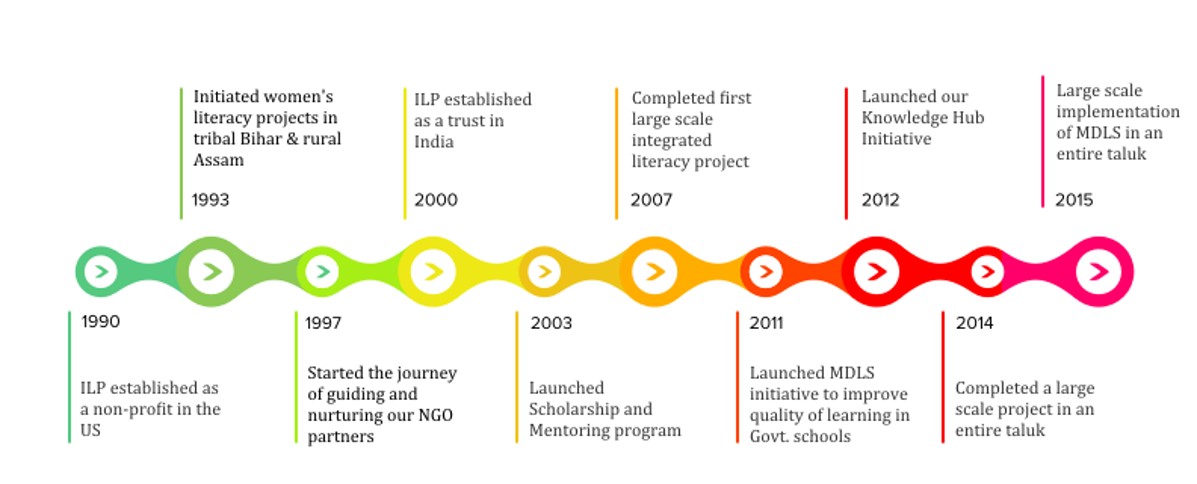India Literacy Project (ILP) was founded in 1990 in the USA by a group of Non-Resident Indians. With its mission to be ‘A Catalyst for 100% literacy in India’, ILP is a developmental support organization that works in partnership with local Non-Governmental Organizations (NGOs) and networks in India to play the role of a catalyst for literacy. ILP’s main role is to enable and support the implementing partner (NGO) in its processes of strengthening the community, to identify and address the gaps in the delivery of education services, and to bring about systemic changes through advocacy.
ILP is registered as a Non-profit 501(c)3 organization (Tax Id. 36-3779020). Donations to ILP in the USA are tax-deductible under Section 501(c)3 of the IRS Code.
ILP INDIA
Realizing that for improved effectiveness and efficiency, ILP would need to have its own presence in India, ILP decided to set up the ILP India Trust. The ILP India Trust was registered in India in January 2000, to facilitate identification of projects, develop intervention strategies. ILP India has developed a comprehensive on-site participatory evaluation and monitoring process which has helped strengthen, sustain and improved the success rates of programs funds.
The ILP-India initiative was established in January 2000. The India branch is an independent legal body registered as a Public Charitable Trust. It is also registered under the section 12A Indian Income Tax 1961. To enable Indian donors to ILP to claim tax credit in India, ILP is also registered under the section 80G of the Indian Income Tax Act, 1961. The 80G Tax number is: No: DIT (E) BLR/80G(R)/665/AAATI3576P/ITO (E)-1/Vol 2008-09.
The ILP India Trust provided the much needed non-financial support to grass-root NGOs.
Goals
The goals of the ILP India Trust are to:
- Play a consultative role in identifying and reviewing programs of existing and potential partners in India.
- Build capacity of our partners in furthering the cause of literacy.
- Cross-pollinate best practices, innovative ideas and methodology in literacy and education between NGOs.
- Identify and Pilot innovative models
- Network with Government departments and formal institutions working in the area of literacy, education, women and child development.
- Promote volunteerism: Build a pool of volunteers who could supplement the skills and resources of grassroots NGOs and field workers.
